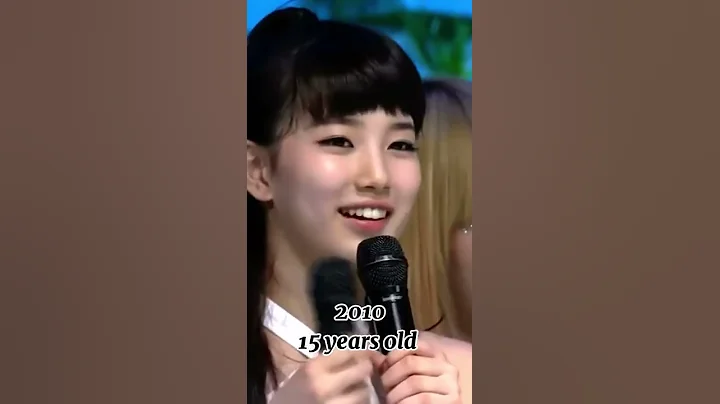Recently " Meng Hua Lu " has become popular to new heights. The slightly comedic but not embarrassing storyline and the unexpected chemical reactions between the leading actors have made it continue to gain popularity.
In order to prove his sincerity, Gu Qianfan blurted out "What will I do in the future, Gu Zhaoshi". The sweets here made many netizens confused. With the heated discussion, "Gu Zhaoshi" also appeared on the hot search .

But Xiaojian checked a lot of information. According to ancient historical documents, he traced the evolution of female surnames and found that he would rather believe in ghosts in the world than Gu Qianfan's mouth!

The husband's surname refers to the ab surname, which is the husband's surname + the father's surname. The Gu Zhao family in "Menghua Lu" is a typical example.
First of all, we need to understand one knowledge point: Where did the surnames of ancient women come from?
In the beginning, women's surnames and given names in ancient times were very casual. During the Spring and Autumn Period and the Warring States Period, the main function of a woman's name was to distinguish her marital relationship. Only after she got married would she have a real name. During this period, the concepts of surnames and surnames were very different from those of later generations, and women's surnames were also relatively confusing. Daji had a surname of "Ji", and the latter character represented the surname; while Zhao Ji's surname was "Zhao", and the latter character did not represent the surname. Her surname is Ji...so the discussion of female surnames in this period is of little practical significance.

When women's names were recorded in official records during the Qin and Han Dynasties, there were two main ways of writing: the provincial surname, and the husband's surname, .
It was relatively common to have provincial surnames. At that time, only aristocratic women had surnames, while civilian women did not.
Because there is no surname, women are given a surname for convenience when recording. At this time, most women will call their husbands' surnames. This phenomenon is more common in historical materials of the Western Han Dynasty period.
For example, in "Historical Records" and " Hanshu", Huo Guang Wife Xian was called " Huo Xian", "Mrs. Huo" and "Huo family" by people at the time. Another example is "Hanshu·Du Zhou Biography" with "Emperor" According to the record of "the Empress Dowager's daughter brother Sima Junli", Su Lin notes that "the name is Junli, and she is the wife of the Sima family". These are all titles given by her husband's surname.
Among the people, women are often referred to as "so-and-so's wife". Zhao Pan'er who lived in the Han Dynasty may be called "Qianfan's wife", "Gu family's wife", etc. after getting married. I understand, folk women don’t even have names, they are called “so-and-so’s wife”. It’s just one word, and I want to say it thousands of times.

In the Wei and Jin Dynasties, the surname of married women changed from the husband's surname to the father's surname. This change can be seen as early as in the "Registration of Anyi, the capital of Gaochang County, Gaoning County, in March of the 20th year of Jianyuan of the Former Qin Dynasty (384)".

The picture shows the original photo of the unearthed document

In this household registration document, women’s names are different from before. Not only does the father’s surname appear, but the given name is also omitted.
So what is the reason for the change from the husband’s surname to the father’s surname?

According to some research by Xiaojian, during the Western Han Dynasty, commoner women changed their husband's surname after marriage, which also implies the alienation or separation of the relationship between women and their father's family after marriage.
What was popular at that time was the "nine clans" that interpreted "nine clans" as "four from the father's clan, three from the mother's clan, and two from the wife's clan". It is similar to "water thrown out by a married daughter", or even more serious. A married woman belongs to her husband, like a commodity bartered for something, and has nothing to do with her previous family after marriage.

As early as the Eastern Han Dynasty, another undercurrent of women taking their father's surname appeared. Both scholars, Ma Rong and Zheng Xuan, emphasized:
Although the father's clan is a smaller clan relative to the married daughter, the married daughter still belongs to the clan of her parents and should not "exterminate her own clan."
"One should not exterminate one's own clan" has received unanimous praise from the people, and the habit of calling one's father's surname has gradually been passed down.
For example, in the inscriptions or sacred texts of the Eastern Han Dynasty that mainly focus on women, if you want to trace the history of her name, you can trace it back from your paternal ancestors. Although this pursuit is often full of mistakes, the concept of searching for ancestors along the paternal line has begun. ingrained.

Below is a photo of the owner of a tomb in the Tang Dynasty. It can be seen that the surname of the tomb owner is Zhang at the beginning, and his wife is Hou.

In the household registration documents of the Tang Dynasty, prefixing the father's surname has also become a fixed writing method:
In the "Gaoning Township Register of Liuzhong County, Xizhou" in the "Tang Kaiyuan Four Years (716 Years)", Jiang Yixuan's household is an example. The mother was recorded as "Mother Zhang was forty-one years old", and the aunt was recorded as "Aunt Zuqu was fifty-seven years old".
Here, the mother's name is recorded as Zhang, and the aunt is Zuqu, both of which are different from the surname of the head of the household, Jiang. At this time, using the father's surname has become a widely used form of address.
From the husband's surname to the father's surname, there is no difference in the discrimination against women. Unmarried women are not worthy of bearing their father's surname. After marriage, they only bear their husband's surname for convenience. Only later can they be "rewarded" with their father's surname. In essence, these are inseparable from the words in Dong Zhongshu's "Liwei Hanwenjia" of the Western Han Dynasty: "The three cardinal principles are that the king is the cardinal guide for the ministers, the father is the cardinal guide for the son, and the husband is the cardinal guide for the wife."

And in In the Song Dynasty where "Menghua Lu" takes place, Guan's husband's surname has long ceased to appear in official documents. At that time, Su Shi's mother was called Mrs. Cheng, not Mrs. Su. The generals of the Yang family were also called She Taijun instead of Yang Taijun. At that time, women were mostly called by their own surnames, x eldest lady, or husband Official position, Duke's wife, Count's wife, etc.

After Zhao Paner gets married, she can be called the Zhao family or the Gu family Zhao family, but she will never be called the Gu Zhao family. What's more, the surname Zhao at that time was the surname of Wang in the Song Dynasty. How could the little Gu family let the surname Wang be adopted?

After understanding the evolution of ancient female surnames, we found that the husband's surname was just a flash in the pan in ancient times. In fact, the Guanhu surname is more like the cultural imported from abroad after the Opium War. During the late Qing Dynasty and the Republic of China, the country was forcibly opened, completely Westernized, various foreign cultures were rampant, and the Guanfu surname was also one of them.
The Bible says that a man and a woman become one flesh when they get married. A woman taking her husband's surname after marriage is a sign of their union. In English-speaking countries, it has become a tradition to take her husband's surname.

The surname in English is called "Family name", which is the family surname. For traditional British people, a family should be neat and tidy and use a unified surname. Of course, the husband's surname is usually used.
In China, the surname Guanhu is not only widely circulated as an imported culture, but also has clear legal provisions:
"In May 1929, Article 1000, Section 3, Part 4, of the Civil Code promulgated by the Nanjing National Government, for the first time "The surname of husband and wife" has a legal expression: "The wife takes her husband's surname with her own surname. The husband-in-law takes his wife's surname by his own surname. However, this does not apply if the parties have stipulated otherwise. "
Although this regulation has been explicitly abolished with the founding of New China, it has been followed in many places, such as Hong Kong , which was colonized by the British for 155 years. There are still many female celebrities in Hong Kong today. With her father's surname, in the entertainment industry, Gigi Lai married lame Ma Tingqiang and then changed her name to "Ma Li Jiaer", and TVB actress Yang Yi married actor Luo Zhongqian and then changed her name to "Luo Yang Xiyao", both of which were hotly discussed by netizens.


It is worth mentioning that Japan still uses the husband’s surname.Although Japan's civil law does not stipulate that the woman must change her surname after marriage, the family unity praised in Japan has long been shrouded in the shadow of the patriarchal system, causing couples to negotiate to change their surnames as a formality. Under the system of couples having the same surname, most cases are Women dropped their original surnames.

Since ancient times, China has not had a compulsory requirement to change a husband's surname. As the saying goes: "If you don't change your name, you won't change your surname." Women changing their surnames do not follow tradition, but are the product of gradual westernization after becoming a colony, and are used to "use foreign things for China."

Mainland China is less affected by such imported culture:
The first " Marriage Law" promulgated after the founding of the People's Republic of China clearly stated: "Husbands and wives have the right to use their own names." Since then, this principle has been used in previous times. It has been passed down through the revision of the law. Women in New China no longer have to change their names because of marriage, and they have an independent name forever.
Nowadays, many parents use two surnames in their children's names in order to put both parents in their children's names, such as popular traffic stars Cai Xukun, Xu Weizhou, etc.
News like this is also very common and heart-warming:

Even news like directly taking your mother’s surname is everywhere:

If you were allowed to choose, what would your last name be?





















